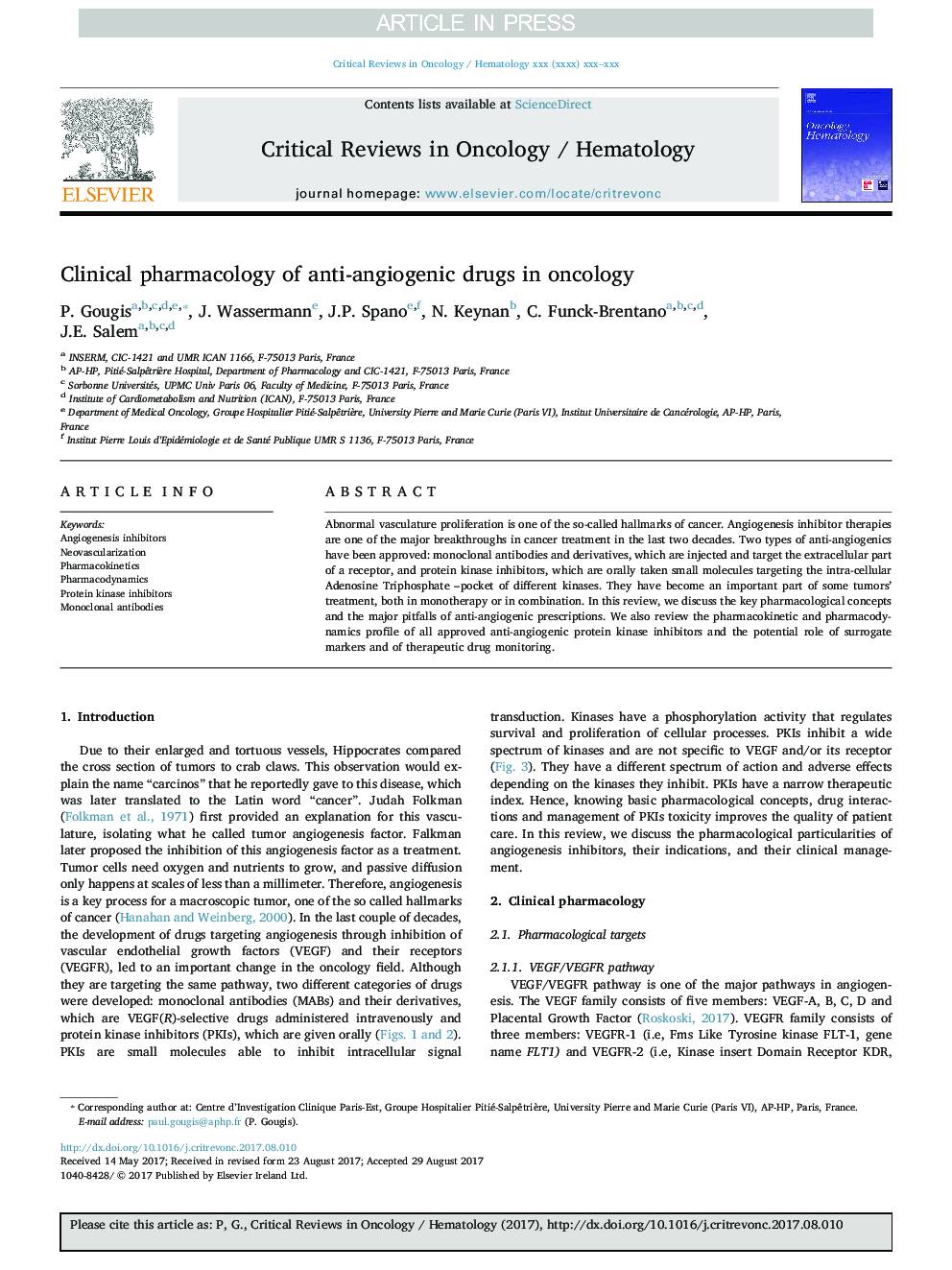| Article ID | Journal | Published Year | Pages | File Type |
|---|---|---|---|---|
| 8733773 | Critical Reviews in Oncology/Hematology | 2017 | 19 Pages |
Abstract
Abnormal vasculature proliferation is one of the so-called hallmarks of cancer. Angiogenesis inhibitor therapies are one of the major breakthroughs in cancer treatment in the last two decades. Two types of anti-angiogenics have been approved: monoclonal antibodies and derivatives, which are injected and target the extracellular part of a receptor, and protein kinase inhibitors, which are orally taken small molecules targeting the intra-cellular Adenosine Triphosphate -pocket of different kinases. They have become an important part of some tumors' treatment, both in monotherapy or in combination. In this review, we discuss the key pharmacological concepts and the major pitfalls of anti-angiogenic prescriptions. We also review the pharmacokinetic and pharmacodynamics profile of all approved anti-angiogenic protein kinase inhibitors and the potential role of surrogate markers and of therapeutic drug monitoring.
Keywords
Related Topics
Health Sciences
Medicine and Dentistry
Hematology
Authors
P. Gougis, J. Wassermann, J.P. Spano, N. Keynan, C. Funck-Brentano, J.E. Salem,
